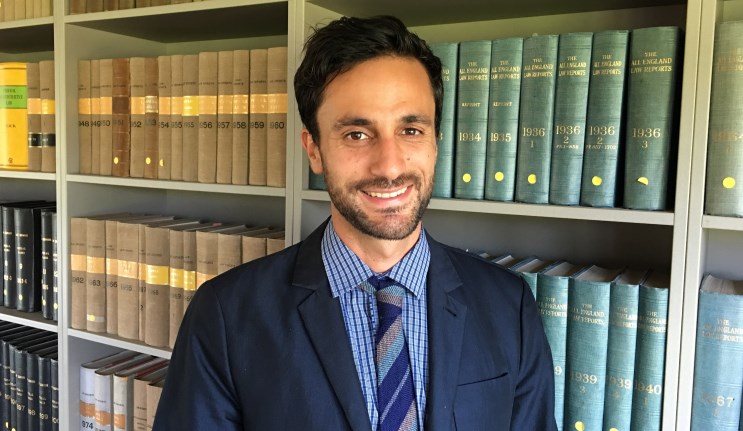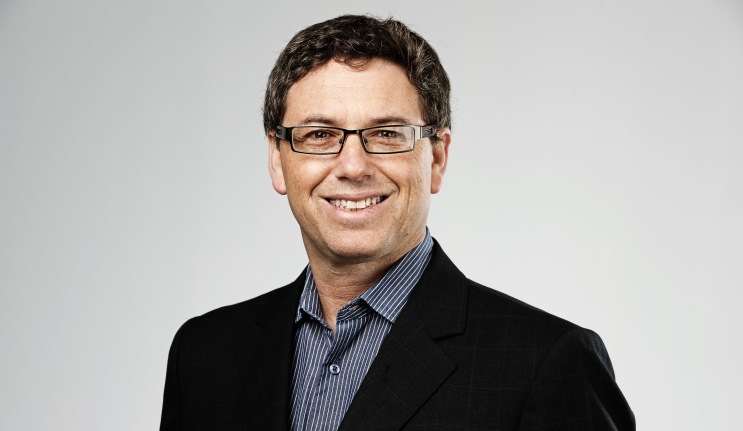
UNIVERSITY NEWS
Macquarie Law School: at the heart of social justice
Macquarie’s commitment to the social justice component of legal education receives another boost this year with the establishment of its inaugural Social Justice Clinic, which is running as a pilot this semester.
“Macquarie Law School has always been known as a powerhouse in the legal social justice arena but we are now planning ahead for a world where our graduates will be expected to have more experiential learning as part of their degrees to enable them to become fully-fledged lawyers,” explains Dean of Macquarie Law School, Professor Natalie Klein.
“This new initiative will be pivotal to ensuring that Macquarie Law School’s Social Justice capabilities continue to be at the forefront of social and legal change, and a key pillar of a Macquarie Law School education.”
The Clinic is the brainchild of Dr Daniel Ghezelbash and Adjunct Professor George Newhouse (Principal Solicitor at the National Justice Project). The two have a long history of working together on pro-bono human rights cases.
The Clinic will build on another recent development the pair have established: the social justice advocacy unit, which features distinguished visiting barristers speaking directly to students about legal and non-legal advocacy skills.
Dr Ghezelbash says that the Social Justice Clinic will give students the chance to work on real life social justice cases, providing a US-style clinical education experience, located on on-campus, funded and controlled by Macquarie Law School, with student education as the primary directive.
It draws on Dr Ghezelbash’s own experience observing the Harvard Immigration Law Clinic, and reflects insights from ‘Best Practices: Australian Clinical Legal Education’ a 2012 study by Adrian Evans et al.
The Clinic follows a group-learning model which during the pilot phase will consist of one team of eight students who, led by a Solicitor-Teacher (in this case, either Dr Ghezelbash or Adjunct Professor Newhouse) run social justice cases on-campus for one day (6-8 hours) per week, with one day a week of work to do outside that setting.
Adjunct Professor Newhouse’s current work focuses on significant social justice issues (including aboriginal deaths in custody and the treatment of asylum seekers and migrants) and this project will engage with his new not-for-profit law firm, the National Justice Project. With a mission to promote human rights and to fight against disadvantage and discrimination, the National Justice Project’s core focus is centred on strategic legal action and effective advocacy and communication.
With current National Justice Project cases and research needs as their focus, students will do evidence-based advocacy, strategic litigation, and learn to research and refine the criteria used to select and conduct effective test-case litigation. They will also learn to develop communications strategies to promote social justice, liberty, government accountability and equality for clients and for society.
US-style wholly law school funded in-house clinics are the gold standard in clinical legal education. However, to date, very few exist in Australia.
“I spent a semester at Harvard Law School a few years ago, and while there I was observing the immigration law clinic they have, and began wondering why we don’t have a similar setup in Australia,” Dr Ghezelbash says.
“After lots of consideration, we decided that rather than setting up our own practice, within the law school it would be better to engage with suitable external partner organisations and institutions. But we are keeping the important thing about the US law clinics – which is that the primary focus and responsibility for the lawyers involved, is student education rather than client services,” he says.
“For just one day a week, when the solicitor-teachers that we employ come onto the university, their case load is secondary because they are paid as academics to teach the students.”
It’s a critical distinction, he says – and the key to a successful clinic.
Dr Ghezelbash says that the Clinic builds on the social justice advocacy unit. “We started that as a way of giving students more practically focused units, where they can develop the skills that they would need if they were interested in working in the social justice advocacy area, but it’s framed in terms of real-life case studies, which is one of the reasons we brought in George Newhouse.”
He sees the advocacy unit as a simulation model that prepares students for the practical model of the Social Justice Clinic where students actually run the cases.
“The National Justice Project is a fast-growing practice, with a team of lawyers working on cases, so clients won’t be neglected whilst George is sitting there in the classroom, where his attention is going to be on the students.”
Dr Ghezelbash says that he sees these units as building on a long-held tradition at Macquarie Law School, of studying law in context and law in society.
“We got this from conception to approval in perhaps six months, blistering speed in university time-frames, and received a number of grants which enabled us to refurbish the space to make it fit for purpose. The support from the university was phenomenal,” he says.
Although it has just commenced this semester, the Clinic has already attracted strong interest, with over fifty applicants having applied for the eight available spots and the successful candidates selected by grade-point average.
“I want students to be able to critically engage with what it means to do social justice legal work,” he says.
“Students must think about all the competing ethical considerations that come into play in this sort of work, where you’ve got the interests of the broader cause up against the interests of your client, and having to juggle those can be quite difficult sometimes.”
He cites the Malaysia Solution case in the High Court (M70 in 2011) where a successful legal challenge was mounted to prevent several hundred asylum seekers being sent to Malaysia.
“This was an excellent outcome for the clients at the time, but resulted in the government of the day changing legislation to bring in a much harsher deterrent policy which has made things significantly more difficult for the greater and subsequent cohorts of asylum-seekers” he explains.

